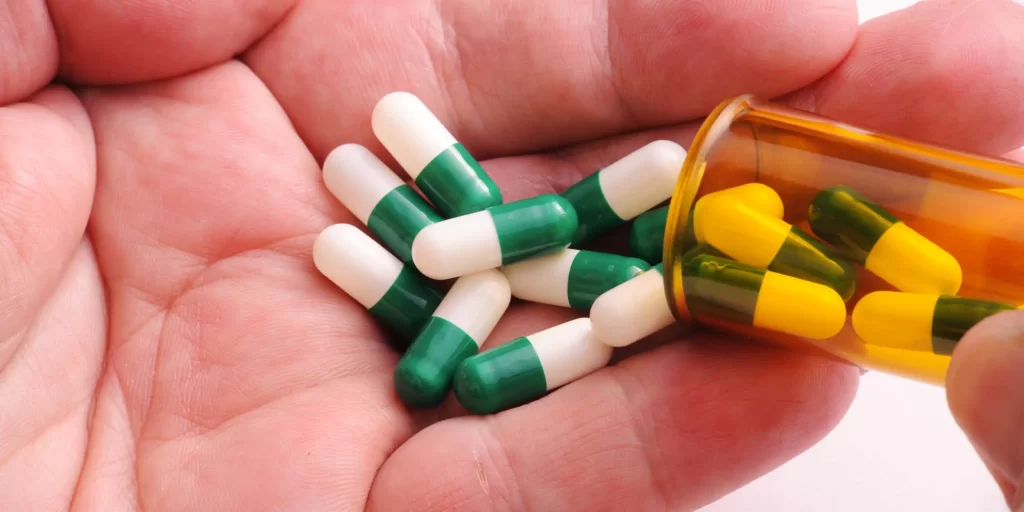Tapering Off Librium Safely
Written by Rob Alston
& Medically Reviewed by Dr. Conor Sheehy, PharmD, BCPS, CACP
Medically Reviewed
Up to Date
Last Updated - 6/17/2022
View our editorial policy
Librium is the brand name for generic chlordiazepoxide. It also belongs to the class of medications called benzodiazepines. Benzodiazepines are generally prescribed to treat anxiety, but can also be given for panic or seizures.
Librium is unique because its primary use in medicine is treating alcohol withdrawal and dependence. It helps to ease the uncomfortable and sometimes fatal symptoms of detoxing from alcohol.
Even though it treats alcohol addiction, Librium can be abused. As a benzodiazepine, it is a schedule IV medication, according to the Drug Enforcement Agency (DEA). Schedule IV medications have recognized medical use and a low potential for abuse and addiction.
Someone dependent on a benzodiazepine like Librium will experience withdrawal symptoms if they try to stop taking it.
Some examples of Librium withdrawal symptoms include:
- Anxiety
- Appetite loss
- Difficulty concentrating
- Dry retching
- Irritability
- Muscle aches
- Nausea and vomiting
- Panic
- Restlessness
- Seizures
- Sweating
- Tiredness
- Trouble sleeping
Here are some situations where Librium tapers would be useful:
- Someone has been using it without a prescription for longer than two weeks
- Someone has taken it for anxiety every day for longer than one month
- Someone is being treated for alcohol dependence, and a Librium taper is used as a treatment
Withdrawal symptoms are uncomfortable and can be life-threatening. Medication tapers are a useful tool to prevent symptoms.
How to Taper Off Librium
Benzodiazepines for anxiety should be tapered at a rate of 10-25% every 1-2 weeks. Therefore, a taper may take anywhere from one to five months to fully complete.
Librium is not a popular drug to treat anxiety, so not many would need this type of taper. However, for the rare cases, the above would be a normal tapering schedule, but only under the supervision of a doctor or an addiction specialist.
Librium more commonly treats alcohol withdrawal and is tapered based on the CIWA (Clinical Management of Alcohol Withdrawal) scale. The CIWA scale is a measurement of the severity of alcohol withdrawal symptoms. The is a measurement of symptoms on a scale of 0-67, with zero meaning no symptoms and 67 indicating the most severe symptoms of alcohol withdrawal.
While going through withdrawal, a person is given doses of Librium based on their CIWA score, and the taper varies greatly based on the individual. A CIWA score is measured multiple times per day, to the taper can be complex. In general, when Librium is being tapered for alcohol withdrawal, it lasts between 5-7 days.
Direct Taper
A “direct taper” means the daily dose of Librium is slowly lowered over time, and the medication is not switched for something else. A direct taper is the most common Librium taper protocol.
Librium is supplied as 5 mg, 10 mg, and 25 mg capsules, so the dose can be tapered as low as 5 mg daily during the last week of the taper. Those who experience symptoms of withdrawal during their taper should speak with their doctor about slowing the taper, and the current step can be paused until symptoms resolve. A taper should never be reversed once it is started.
Substitution Taper
Librium has a long half-life of 100 hours, so there is no need to substitute for another medication. Based on the half-life, it takes the body 500 hours (20 days) to metabolize one dose completely. Drugs with this type of half-life taper themselves because of how slowly they leave the body.
Librium Taper Schedule
Anyone with a prescription for Librium who needs to taper should speak with their doctor firsthand they can make a plan. Librium should only be tapered under the supervision of a medical professional.
For illustration purposes, a Librium taper may look similar to:
- Week 1: Librium 100 mg daily
- Week 2: Librium 75 mg daily (25% reduction)
- Week 3: Librium 50 mg daily (50% reduction)
- Week 4: Librium 40 mg daily
- Week 5: Librium 30 mg daily
- Week 6: Librium 20 mg daily
- Week 7: Librium 10 mg daily
- Week 8: Librium 5 mg daily
A Librium taper to treat alcohol withdrawal will look very different than the above. For alcohol withdrawal, the CIWA-scale taper is used only in inpatient drug rehab facilities or hospitals.
Medically-Assisted Librium Detox
Currently, there is no medication available for Librium withdrawal symptoms. Withdrawal symptoms can effectively be treated with a direct taper, other withdrawal medications are not necessary.
If you or someone you love is having trouble stopping Librium or needs help with alcohol withdrawal treatment, please call The Recovery Ridgefield. Our addiction professionals can craft a plan to help you on the journey to recovery.
Sources
Bharadwaj, Balaji; Kattimani, Shivanand; “Clinical Management of Alcohol Withdrawal: A Systematic Review.” 2013. Accessed September 29, 2019.
Food and Drug Administration. “Librium Package Insert.” 2005. Accessed September 29, 2019.
National Center for PTSD. “Effective Treatments for PTSD.” 2013. Accessed September 29, 2019.
Prater, Christopher D; et al. “Outpatient Detoxification of the Addicted or Alcoholic Patient.” American Family Physician, 2014. Accessed September 29, 2019.
View Sources
Bharadwaj, Balaji; Kattimani, Shivanand; “Clinical Management of Alcohol Withdrawal: A Systematic Review.” 2013. Accessed September 29, 2019.
Food and Drug Administration. “Librium Package Insert.” 2005. Accessed September 29, 2019.
National Center for PTSD. “Effective Treatments for PTSD.” 2013. Accessed September 29, 2019.
Prater, Christopher D; et al. “Outpatient Detoxification of the Addicted or Alcoholic Patient.” American Family Physician, 2014. Accessed September 29, 2019.
Authorship






